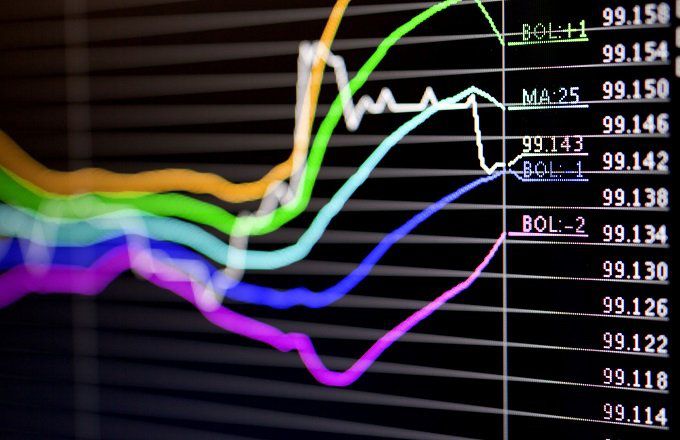
The forex market traded over $7.5 trillion a day as of April 2022, including currency options and futures contracts. With this enormous amount of money floating around in an unregulated market that trades instantly, over-the-counter, with no accountability, forex scams offer unscrupulous operators the lure of earning quick fortunes.
While many once-popular scams have ceased—thanks to strong enforcement actions by the Commodity Futures Trading Commission (CFTC) and the 1982 formation of the forex broker and interested party-funded self-regulatory National Futures Association (NFA)—some old scams linger, and new ones keep popping up.
Key Takeaways
- Many scams in the forex market are no longer as pervasive due to tighter regulations, but some problems still exist.
- A traditional scam is for forex brokers to offer wide bid-ask spreads on certain currency pairs, making it more difficult to earn profits on trades.
- Traders need to be careful when dealing with offshore, unregulated brokers.
- Individuals and companies that market systems—like signal sellers or robot trading—may sell products that are not tested and do not yield profitable results.
- If the forex broker is commingling funds or limiting customer withdrawals, it could be an indicator that something fishy is going on.
Back in the Day: The Point-Spread Scam
An old point-spread forex scam was based on computer manipulation of bid-ask spreads. The point spread between the bid and ask basically reflects the commission of a back-and-forth transaction processed through a broker. These spreads typically differ between currency pairs. The scam occurs when dishonest brokers artificially increase the bid-ask spread.
For instance, some brokers do not offer the normal two-point to three-point spread in the EUR/USD pair but spreads of seven pips or more. (A pip is the smallest price move that a given exchange rate makes based on market convention. Since most major currency pairs are priced to four decimal places, the smallest change is that of the last decimal point.) Factor in four or more additional pips on every trade, and any potential gains from a good trade can be eaten away by commissions, depending on how the forex broker structures their fees for trading.
Although this scam has quieted down over the last 10 years, you should be wary of any offshore retail brokers that are not regulated by the CFTC, NFA, or their nation of origin. Some firms are known to have packed up and disappeared with clients’ money when confronted about their actions. Stronger enforcement has led to jail time for some bad-faith actors, but the risks cannot be entirely ruled out.
It is incredibly important to use a broker you can trust.
The Signal-Seller Scam
A popular modern-day scam is perpetuated by the so-called signal sellers. Signal sellers are retail firms, pooled asset managers, managed account companies, or individual traders that offer a system—for a daily, weekly, or monthly fee—that claims to identify favorable times to buy or sell a currency pair based on professional recommendations.
Such companies or individuals often tout their vast trading experience and unique trading abilities, boasting a long list of positive testimonials where supposed users share their success stories. The unsuspecting trader just needs to hand over a certain amount of money to join in on the fun. The number of such services has grown significantly over the recent years.
The worst of signal-seller scammers simply collect money from a number of traders and disappear. Others will occasionally recommend a good trade, to keep the signal money flowing. Although there are signal sellers who are honest and perform trade functions as intended, it pays to be skeptical and do an extra layer of due diligence when choosing such a service.
“Robot” Scamming in Today’s Market
A persistent scam, old and new, presents itself in various kinds of automated forex trading systems. The scammers tout their system’s ability to consistently generate money with automatic trades that require little to no human input. The trading systems are often referred to as “robots” or “bots” and are offered for a one-time or recurring fee. Many of these systems have never been submitted for formal review or had their performance claims verified by independent parties.
Examination of a forex robot must include the testing of a trading system’s parameters and optimization codes. If these prove invalid, the system will simply generate random buy and sell signals, providing no real trading edge, and meaning the unsuspecting traders will do nothing more than gamble. Not all systems are bad, but traders should do thorough research before putting money into one of them.
Other Factors to Consider
High-priced trading systems and services: Many trading systems are quite costly, and the high price tag of up to several thousand dollars may itself be the biggest red flag. Be especially careful of system sellers who offer programs at exorbitant prices justified by a guarantee of phenomenal results. Instead, look for reasonably priced sellers whose systems have a verifiable track record.
Commingling of Funds: Another persistent problem is the practice of commingling of funds. Without a record of segregated accounts, clients cannot be certain their funds aren’t being misused. Commingling makes it easier for retail firms to use investors’ money in inappropriate ways, such as paying exorbitant salaries, spending on luxury items, or even disappearing with the funds. Section 4D of the Commodity Futures Modernization Act of 2000 addressed the issue of fund segregation in the U.S., but not all jurisdictions treat the issue as seriously.
An important factor to always consider when choosing a broker or a trading system is to be skeptical of promises or promotional material that guarantees a high level of performance.
Other scams and warning signs exist when brokers won’t allow the withdrawal of funds from investor accounts, or when problems exist within the trading platform. For example, can you enter or exit a trade during volatile market action after an economic announcement? If you can’t withdraw money, warning signs should flash. If the trading platform doesn’t operate to your liquidity expectations, warning signs should flash again.
The Bottom Line
While regulatory changes over the years have driven out many shady dealers and legitimized the system for honest operators, it is still advisable to perform your own due diligence. When choosing a broker, consider checking if it is a member of NFA’s Background Affiliation Status Information Center (BASIC). If you’re interested in a trading service, seek out major red flags, such as unreasonable pricing, or promises of unrealistically strong results.


